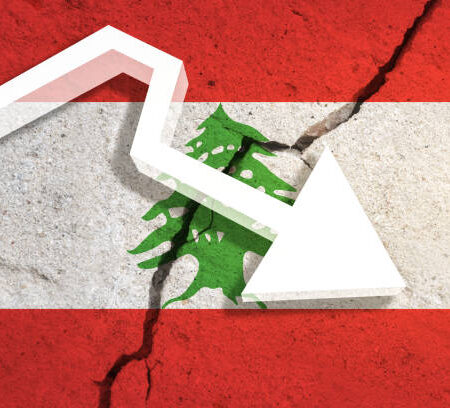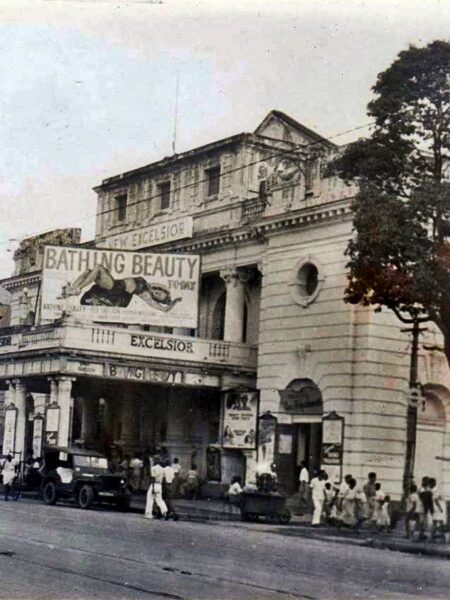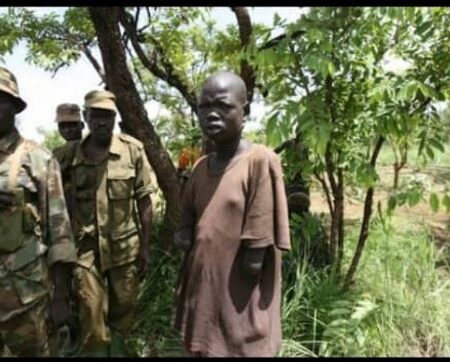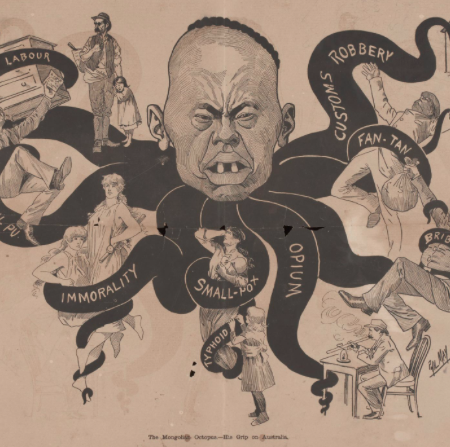Preface
Globalization transcends national borders and so do its problems. The world is interconnected and interdependent so much so, that there is no way to avoid being affected by a major event, taking place anywhere on the globe. One can describe this situation either as the butterfly effect[1] or the domino effect[2]. The Global Financial Crisis (GFC), a term which refers to the period of extreme stress in global financial markets and banking systems between mid 2007 and early 2009, serves as a great example. States were unable to protect their national economy due to the nature of the crisis and the global economic system itself. Originating in the United States, the GFC spread to the rest of the world for the next couple of years imposing long lasting effects on the various national economies. The Eurozone crisis followed shortly after, damaging the transatlantic relations for the coming years. Greece was the main victim of the ensuing Eurozone crisis.
The Greek case in particular can best be understood if someone takes into consideration the state of Greek economy during the previous years. It can thus be said that the economic turmoil in Greece was further exacerbated by the Global Financial Crisis and the eurozone crisis, rather than triggered by it (Ozturk, 2015) High level deficit and debt level, low competitive power and tax revenue shortfalls were some of the Greek economy’s characteristics. One can hardly imagine any level of economic security existing.
The task of this paper is to examine the ways in which the people working in the private sector experienced the crisis, and how their perception and feeling of economic security changed because of it. The task is to observe not only the pragmatic, but also the imaginary aspect of economic security, or rather insecurity during the crisis.
To meet this task, four interviews of two males (Alexis, Nikos) and two females (Maria, Dimitra) were conducted. All of the interviewees worked in white-collar jobs the private sector during the crisis or at least during its early years. At the beginning of the crisis (2007-2008) they were 36, 39, 32 and 30 years old respectively. Their socioeconomic status is middleclass. The names that will be used in this paper are not their real ones as they preferred to maintain their anonymity. Maria worked in the media industry, Nikos in the security industry and Dimitra as an assistant in the health industry. Alexis requested that his line of work not be revealed.
In terms of methodology, quantitative research was used to better accomplish the goals of this paper, which were to transmit the unique experiences and narratives of the interviewees. The basic tools used were semi-structured interviews with a supplementary questionnaire consisting of open-ended questions. This allowed the author to re-interview all the narrators permitting them to convey the full range of their experiences.
The concept of Economic Security as a Social Construct
Before understanding what economic security is we have to understand what we refer to as security? Security is a concept socially constructed, conceptually depended, historically depended and existentially depended.
To further elaborate when we say conceptually depended we mean that the way someone understands security varies due to the meaning one give to it. For example, when talking about security, people in coastal areas may have in mind protection from the climate change. People in areas affected by war, on the other hand, will mostly describe security as staying safe and alive.
The concept of security my also vary depending on the historical context. Thus, the concept of security during the first half of the twentieth century and the early twenty-first century will vary dramatically.
Since social constructs are, as the name suggests, constructed within societies it is evident that they are existentially depended upon them. Without the conceptual meaning given to them, they would simply not exist.
Economic Security is a sub-category of Security.
It can be best described as the ability of people to meet their needs consistently. It is connected to both the concept of economic well-being and the notion of the modern welfare state, a governmental entity that commits itself to providing baseline guarantees for its citizen’s security (Mollenkamp, 2022)
The ability of being able to meet ones needs will come up various times in this paper, in one way or another, especially when the interviewees attempt to define what is economic security for them.
How the Interviewees defined Economic Security
While attempting to examine the lack of economic security, especially through the eyes of employees, it is necessary to grasp their understanding on what economic security is. Every single one of the them was describing a feeling of freedom of action which goes beyond meeting one’s basic needs.
As Dimitra noted:
“For me to be able to feel economically secure, I would have to be able to just think about something I want to do and just do it. Not to think how to go about doing it and think if it is right and if it is something I really need to do. Basically not having to second guess my economic decisions.”
Through Dimitra’s words we can clearly see the impact of the Global Financial Crisis on a micro level of analysis. What Dimitra is expressing is the suppression of her desires which in many cases are self imposed due to the feeling of guilt[3] that was imposed on the Greek society during the crisis (Nikolopoulou, 2016). By having her define what economic security is, we can see what she has been deprived of.
In a similar manner, Maria described economic security as:
“Being able to have your basic needs met, but also to be able to have something more, to be able to buy something for your kid every now and then, to maybe organize a trip. For me I think being able to have the choice of doing something even if I don’t want to do it, would be economic security. What provides me with a lot of economic security is not being in debt, having paid all my bills for example, that helps me sleep better at night.”
At this point it must be noted that during the crisis Maria lost her job multiple times (it is highly likely that this might have influenced her perception of economic security, especially compared to the other interviewees). Maria mentions the ability to make economic decisions freely, but what stands out the most is her statement about paying her bills and not being in debt. Her need to be debt-free is quite contradictory to the state of the Greek economy during the period. This helps us understand the impact that the crisis itself and the narrative that was built around it had on the people’s perception about economic behavior.
Having a general definition of what economic security means for the interviewees, we shall now proceed in defining the reasons that made them feel economically insecure. They are specifically imbedded within the nature of the private sector.
The Feeling of Insecurity
During the interviews it became evident that the lack of economic security derived from structural characteristics of the private sector. Τhe difference between the public and the private sector when it comes to the ability of firing the employees was one of those.
Apart from the reduction of their pay,[4] the majority of Greek employees work in small firms in the private sector which in contrast to the public sector does not provide absolute employment protection (Matsaganis, 2013). Moreover, legislative changes added to the economic insecurity of the private sector employees by further reducing firing costs and making them easier overall (Matsaganis, 2013).
To further understand the impact that this had on the employees’ everyday lives we will have a look at the fears they were experiencing at the time. Those fears could manifest themselves on a personal level or at the collective one (family etc.). For example, Nikos states that:
“I was not so much afraid for myself; I was afraid that I would get fired and not be able to provide for my family, support my kid, not being able to provide my son with the necessary things to have a secure future and live a life with dignity. I was afraid of the moment when he would grow up and have to find a job; the circumstances in the labor market were terrible. If I’m not mistaken at some point the unemployment was somewhere around 25%.”
Nikos expresses his insecurity about the labor market, not only at that time but also for the future, in a way predicting that the crisis would go on for a whole generation affecting even his son. It vividly highlights the level of uncertainty people went through at the time due to the narrative that was being put forward, but also due to the impact the crisis had in their everyday lives. One should take a closer look at the reference to the unemployment rate. During the crisis the unemployment rate reached 27.5 %. (Mavridis, 2018)
Alexis clearly defines the feeling of insecurity which derived from working in the private sector, where someone could get fired more easily.
“I was almost certain I would lose my job, which eventually happened, that I went as far as to get a second job in the public sector. OK they paid a bit less but at least I was a bit more sure I would not get fired. Every month that came by I knew I would get paid even if the money would be less. You know, I had to do anything to at least get by and try to make sure I had my basic needs met. I think the worst period was around 2010 when I got fired as well as my wife and she had just delivered our baby; we were both unemployed for 4 years and I took jobs here and there to get by. Thank god our parents helped a lot by paying some bills or the groceries, or stuff for the baby.”
Alexis attempted to mitigate this insecurity about being fired by getting a job in the public sector. He would later get fired from his private sector job, confirming his fears about being let go. Alexis’s case was not exceptional. Many people lost their jobs during the following period of economic upheaval, as many small to medium sized businesses, which the Greek economic system mostly consists of, went bankrupt. It must be noted at this point that as the years went by, the situation only got worse. While the total unemployment rate of the active population stood around 7.8% in 2008, in 2013 the unemployment rate was almost 4 times higher, at 27.5%. Unemployment was especially intense among the younger segment of the Greek workforce. Again, in 2008 unemployment among people aged 15-24 was at the 22, 5 percentile, whereas in 2013 it reached 59.9%. (Mavridis, 2018)
When it comes to firing employees, this difference between the private and the public sector can be traced back long before the crisis came along. This vulnerability was further exaggerated by the crisis due to the nature of the Greek economy. The majority of the Greek workforce is absorbed by private companies, which in an overwhelming majority are very small in size and thus more vulnerable during economic upheaval.
Hedonic Adaptation and the Notion of Survival Mode.
Someone may ask how “hedonic adaptation” and being in “survival mode”[6] come together. “Hedonic adaptation” refers to the notion that after positive events and a subsequent increase in positive feelings, people return to a relatively stable, baseline level of affect, thus arriving to a new “normal” state of being. The Global Financial Crisis ended a long period of economic prosperity in Greece which was mostly supported by foreign borrowing. The economic growth that took place before the crisis had drastically increased the standard of living, thus creating a new normality. When the crisis hit, people naturally compared their standard of living that was reduced by the crisis, to what they were previously used to. This big gap between the two periods increased the distress and the insecurity that people felt.
It is important to keep in mind the tremendous impact that the crisis had on a large part of the Greek population. It is worth noting that the majority of the interviewees when describing economic security, did not refer to meeting just their basic needs, but being able to sustain a relatively comfortable standard of living.
When referring to the crisis some of the interviewees claimed that they constantly felt like being in survival mode. Most notably Nikos stated the following:
“You know, since then (the crisis) I feel that I have entered a state of constantly being in survival mode, I am anxious all the time, I think about money so much more. I sort of miss being care free about my spending. I wish I could go back to when I would go on vacation and before even returning, I would plan the next one, I remember this one time in particular where we were with my friend in the airport coming back from a trip and being like “hey why don’t we just arrange the next trip: and my friend answered “not again, lets rest for a while”. You know I wish we would have arranged that trip. We haven’t gone anywhere since then, I really miss those days. “
Nikos seems to constantly subsist in “survival mode” when it comes to economic matters, due to his inability to ensure a certain level of economic stability. He merges the notions of being in survival mode with the feeling of economic insecurity.
Having previously been in a state of increased financial freedom, it has been really difficult to adapt to a state of economic hardship. Especially when using the prior state as a reference point. Though what is important to note here is his words in the end. When he says that he hasn’t been able to go anywhere since then, what he is basically stating is that the crisis is not over. This is something that all the interviewees mentioned. They believe that since the crisis, there has been little to no improvement to their financial situation.
Conclusion
The increased economic insecurity that was observed during the crisis was a byproduct of both, pragmatic and imaginary factors. Both, state legislation, the bad state of the Greek economy in general, as well as the narrative and the perception of the crisis widely endorsed took its toll on the economic security of the Greek people, especially of those working in the private sector. Even if not everyone experienced it in the same ways, in one way or another the majority of the Greek population experienced the negative impact of the Global Financial Crisis; and still does to this day.
It can’t be stressed enough, that in no ways does this paper attempt to undermine the suffering experienced by the majority of the Greek society. After all it must be noted that most of my interviewees squarely belong to the middle class. It is highly likely that the picture presented above would have been very different had the interviewees been member of the working class, engaged in manual labor. It would be unrealistic to state in any way that the economic insecurity felt by the Greek people was merely imaginary, when 36% of the population was at risk of poverty and social exclusion (Mavridis, 2018).
However, the increased economic prosperity of the previous years further exaggerated the experience of suffering and despair that the Greek society went through. The narrative of guilt only legitimized the draconian measures imposed on the Greek society.
Finally what was laid bare during the interviews was an interesting variation in the concept of living long term in “survival mode”: living in constant stress, anxious about one’s financial situation for the years to come. The pandemic has only made matters worse.
Bibliography
Matsaganis, M. (2013). The Greek Crisis: Social Impact and Policy Responces. Friedrich Erbert Stiftung.
Mavridis, S. (2018). Greece’s Economic and Social Transformation 2008-2017. Social Sciences, 7(2), 9. Available online at: https://www.mdpi.com/2076-0760/7/1/9/htm
Mollenkamp, D. T. (2022). Economic Security, Investopedia. Available online at: https://www.investopedia.com/economic-security-5213404
Nikolopoulou, A. (2016). ‘Exceptional’, ‘normal’ or a ‘Myth’? The discursive construction of the ‘crisis’ by Greek employees. Discourse & Society, vol. 27 No 5, pp.516-532.
Nikolaidis, I. (2018). Οι Επιπτώσεις Της Κρίσης Στα Εισοδήματα Των Ελλήνων – Μια Έρευνα. Dianeosis. Available at: https://www.dianeosis.org/2018/11/oi-epiptoseis-tis-krisis-sta-eisodimata-twn-ellinwn/
Ozturk, S. (2015). Effects of Global Financial Crisis on Greek Economy: Causes of Present Economic and Political Loss of Prestige. International Journal of Managerial Studies and Research, vol. 3 issue 6, pp.26-35.
[1] Small changes in initial conditions can lead to large-scale and unpredictable variations in the future state of the system.
[2] A cumulative effect produced when one event initiates a succession of similar events.
[3] The Greek society was being projected as an indebted subject, fully responsible for its condition, due to the way of life that individual citizens sustained (i.e. living beyond their means). This narrative reproduced a feeling of guilt within the Greek society as a whole.
[4] During the period 2009-2014, the average disposable income for ages ranging from 30 to 44 (all of the interviewees fit in this category) dropped by 42.3%. (Nikolaidis, 2018)










